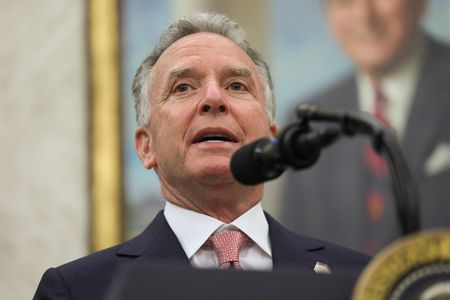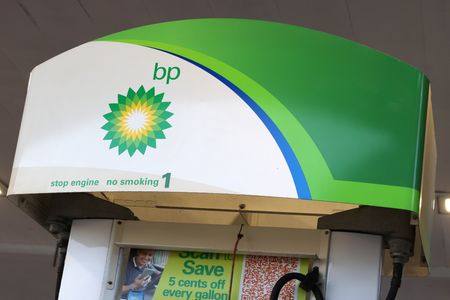FRANKFURT (Reuters) – Germany’s Trading Hub Europe will be charged with enacting in its home market any changes to gas storage filling rules that national and European policymakers decide in response to claims rigid targets are inflating prices.
According to a draft EU document due to be published next week, the European Commission plans to work on more flexible targets for EU countries to refill their gas storage ahead of winter.
The state-mandated gas market manager – whose unwieldy acronym spells THE in English – has said there is no set decision yet on the timing or shape of changes to the system at home, although the leaked EU documents showed some bloc-wide action is afoot.
THE had already started discussions on new filling procedures in January at a national level.
Following are explanations of what THE is and does.
CONTEXT
European Union gas stocks are less than half full as a cold winter has resulted in a quick drawdown and Russian supplies have stopped, raising concern over security of supply.
Germany’s inventories are 41% full, down from 71% a year ago.
TARGETS
THE in Germany, as the biggest storage provider, should under current obligations refill caverns by 90% by November 1.
Some EU members including Germany are uneasy as the targets have driven up prices by promising traders easy profits should accompanying subsidies flow.
WHO IS THE GAS MARKET MANAGER TALKING TO, AND ABOUT WHAT?
THE, as auctioneer and administrator of a quarter of German storage space, must cooperate with regulator the Bundesnetzagentur, which wants consumer prices reined in, and with the Berlin Economy Ministry, about product designs.
In THE’s technical jargon, it will devise new products for auction called SBI, or strategic filling instruments, to replace SSBOs – Strategic Storage-Based Options – which according to traders would reduce commercial risks for suppliers.
The regulator has confirmed it is “evaluating options and necessities” around SBIs with THE and the ministry, but said the outcome is open.
GERMAN INDUSTRY CONCERNS
The country faces a legal limbo as new elections on February 23 are not likely to quickly produce a functioning government or give an effective steer to central ministries overseeing THE.
A German gas tariff to offset THE’s costs was removed after neighbours protested. This has increased internal ex-storage gas prices.
(Reporting by Vera Eckert; Editing by Jan Harvey)







